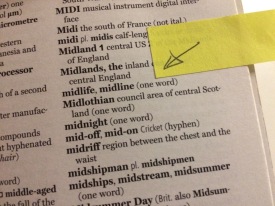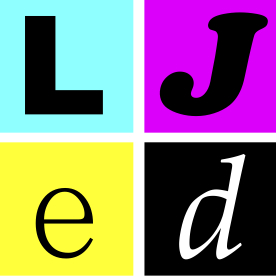 Editors love answers. They spend countless hours tussling over the right answer to things, with each other and on their own, even if in the end they conclude that the right answer is that there is no right answer. Also, a good editor accepts that they don’t necessarily have all the answers … but they sure as hell know where to go to find them. This is why on editors’ websites you’ll often find tasteful shelfies with rows of all the usual reference suspects lined up in the background, or nonchalantly stacked on desks beside steaming mugs of tea, presided over by imperious cats.
Editors love answers. They spend countless hours tussling over the right answer to things, with each other and on their own, even if in the end they conclude that the right answer is that there is no right answer. Also, a good editor accepts that they don’t necessarily have all the answers … but they sure as hell know where to go to find them. This is why on editors’ websites you’ll often find tasteful shelfies with rows of all the usual reference suspects lined up in the background, or nonchalantly stacked on desks beside steaming mugs of tea, presided over by imperious cats.
I haven’t been blogging as much recently, and part of the reason for this is that for some time, I’ve felt bereft of answers. I’ve got a backlog of discarded blog posts from recent weeks littering the inside of my laptop, on subjects ranging from International Women’s Day (too ranty), via proofreading on PDFs (eggs, grandmothers and sucking spring to mind), to what editors can learn from Special Agent Dale Cooper of Twin Peaks fame (that one might yet make it out). Oh, and there’s a post on serial commas. (Only kidding. There so isn’t.)
So what happened to all the answers? I lost the answers editorially, for a start. I had a couple of bruising work incidents last year, which I’ll attribute to stress and unreasonable demands on the one hand, and an excruciatingly bad back on the other. These have thankfully receded into distant memory (and led, in part, to a post on ‘self-mentoring‘ – nobody’s perfect, but the thing that keeps a freelancer going, apart from a steady flow of work, is the ability to come back and do better). I’m now editing with renewed vigour and a standing desk, and logically I know that these two events stack up against all the thousands of times in the past twenty years I have not messed up – but still. The confidence takes a bashing and any advice I could give other editors on how best to do things felt, for a while, a bit hollow.
The other answers I felt I’d lost were more existential and more problematic. I wrote a few months ago about the plight of the editor in the face of quite bad things happening in the wider world. I know I made some colleagues feel better by writing that down, which is brilliant, and is basically the entire raison d’être for the blog. (I’m not much of a content marketer. More an uneasy waffler.) As it turns out, though, the problems I wrote about then are not going away no matter how much I wield my metaphorical red pen, which leads me to the one tried and tested bit of advice in this week’s post: red pens do not work on bullshit.
Often, when I need a really simple answer, I turn to the New Oxford Dictionary for Writers and Editors. It’s on one side of my desk at all times, right under the coffee. Now, being a sensible editor, I know in my heart this isn’t the oracle – but still, if I am swithering over whether to hyphenate something or not, and the project style sheet isn’t giving me any clues, I know I can rely on faithful old NODWE to cut the crap, give me a straightforward decision and let me get on with my day.
Recently, though, even NODWE’s been failing me. Try looking up ‘looming eco-apocalypse’, ‘clusterfuck’ or even just ‘monumental ass-hattery’, and it’s no help at all. Not just on matters of hyphenation, capitalisation, italicisation, how the Americans spell these things … even less on what to bloody do about any of it. Belatedly realising that all this angst might be internal as well as external, I tried looking up ‘midlife’, as in ‘crisis’, which at least now I know NODWE wouldn’t hyphenate (hurrah!) – but I’m still no closer to knowing if this is a genuine crisis I need to worry about, or if it will pass like a spring shower.
Finally, I’ve been confronting a creeping realisation that the answer to more or less any problem, editorial or otherwise, can’t necessarily be summed up in a sensibly proportioned blog post. Often things are more complicated than that, and there’s more than one way of looking at them, and isn’t knee-jerk over-simplification one of the reasons the entire Western world seems currently to be intent on implosion (or explosion, or both if you’re Donald Trump)?
However, there are positives to draw from all this. Now we’ve passed the 700-word mark (hi, both of you who made it this far!), of course I’m going to go for the obligatory upbeat ending. How can I possibly turn an ongoing lack of answers into a triumph when I’m an editor, paid to help discern them? Perhaps by acknowledging that a lack of answers might actually be the healthiest state. Sure, it’s disconcerting at first, but in the long run it could make me a better editor: more questioning, more sensitive, a better listener to the written word and more receptive to voices other than my own; more capable of seeing the wood rather than the trees … or at least as well as the trees. More alert to a range of possibilities. Perhaps gradually more comfortable with the realisation that nothing is certain, no matter how much I would like it to be.
Liz Jones has worked as an editor in the publishing industry since 1998, and has been freelance since 2008. The more she knows, the more she realises how much more there is to know.


Just a suggestion: you could create a blog post that houses all the blog posts you didn’t think could stand up on their own. It might confuse the search engines a bit, but I bet it’d be popular.
LikeLike
Yes … I like the idea of the poor, confused search engines. Take that, Google!
LikeLike
Lovely blog Liz as always – but just one thing – what pray is wrong with a blog on the serial comma? I have done blogs on the semicolon, the dash and the hyphen, and the serial comma is next on my list (lols all round)!
LikeLiked by 1 person
Nothing at all wrong with it, Howard! I’d just be wary myself of writing on it … way too controversial!
LikeLike
And apologies Pointscast is me Howard in case you weren’t to able to identify me any other way. Don’t ask.
LikeLike
Nice post, Liz. Forget the serial comma – the stooshie du jour (nice Scots-French mash-up for you there) is surely the singular they? Causing apoplexy since ooh, forever.
LikeLike
Lovely mash-up, Denise – thank you!
LikeLike
Uncertainty means rule in favour of whatever the author wrote, as long as the aforementioned author is consistent throughout. The only reason I wrote that sentence, by the way, is to show that I was one of the two to pass the 700-word mark.
Now then. Which is worse, editing PDFs or debating the serial comma? Discuss among yourselves.
LikeLiked by 1 person
Thanks for getting there! I hear that there have now been more than two. 🙂
LikeLiked by 1 person
I’m a US editor who has even fewer answers than you do, Liz, and I’m currently struggling to regain my voice—even one that is weak from lack of sleep as I try to make sense of a world lacking both certainty and sanity. I suppose that’s the reality of history, but it doesn’t make the present feel any better. As always, thanks for writing and sharing your truth. Here’s to solidarity in seeking the positives!
LikeLike
Thanks for your comment, Ranee, and yes, to solidarity, and positivity where possible! I feel for my US colleagues at the moment. These are very unsettling times for so many.
LikeLike
Thanks, Liz, for your incredible honesty shining through – makes blog-reading very worthwhile!
LikeLike
Thanks, Ally. 🙂
LikeLike